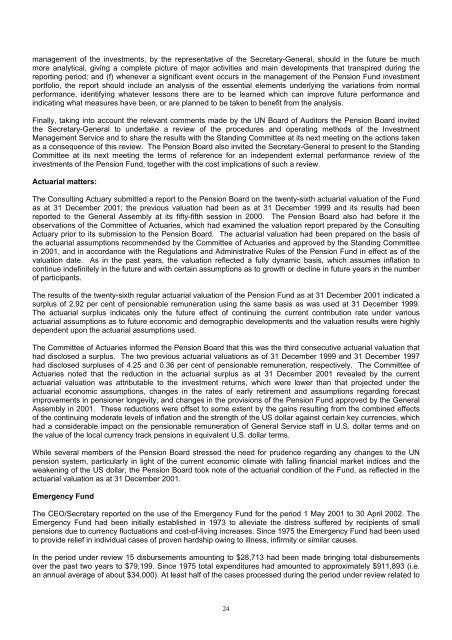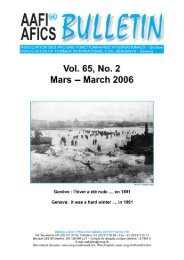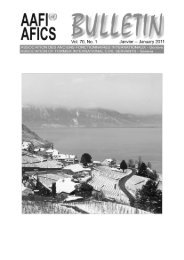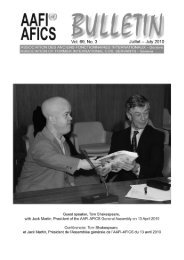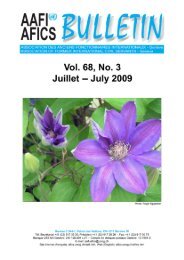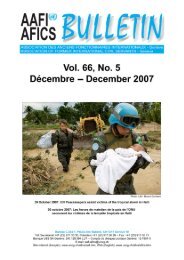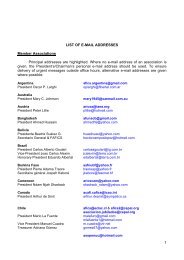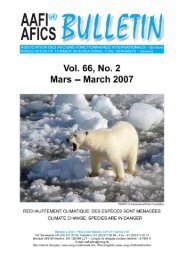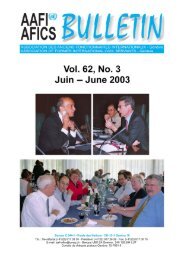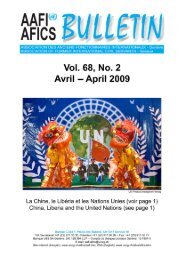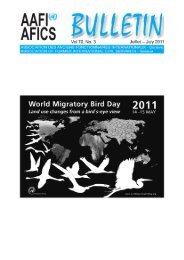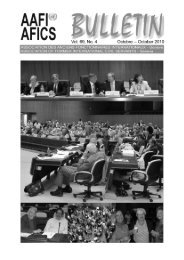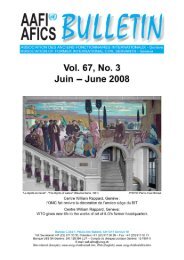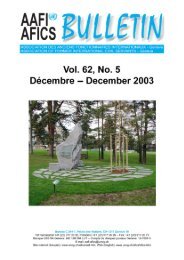Create successful ePaper yourself
Turn your PDF publications into a flip-book with our unique Google optimized e-Paper software.
management of the investments, by the representative of the Secretary-General, should in the future be muchmore analytical, giving a complete picture of major activities and main developments that transpired during thereporting period; and (f) whenever a significant event occurs in the management of the Pension Fund investmentportfolio, the report should include an analysis of the essential elements underlying the variations from normalperformance, identifying whatever lessons there are to be learned which can improve future performance andindicating what measures have been, or are planned to be taken to benefit from the analysis.Finally, taking into account the relevant comments made by the UN Board of Auditors the Pension Board invitedthe Secretary-General to undertake a review of the procedures and operating methods of the InvestmentManagement Service and to share the results with the Standing Committee at its next meeting on the actions takenas a consequence of this review. The Pension Board also invited the Secretary-General to present to the StandingCommittee at its next meeting the terms of reference for an independent external performance review of theinvestments of the Pension Fund, together with the cost implications of such a review.Actuarial matters:The Consulting Actuary submitted a report to the Pension Board on the twenty-sixth actuarial valuation of the Fundas at 31 December 2001; the previous valuation had been as at 31 December 1999 and its results had beenreported to the General Assembly at its fifty-fifth session in 2000. The Pension Board also had before it theobservations of the Committee of Actuaries, which had examined the valuation report prepared by the ConsultingActuary prior to its submission to the Pension Board. The actuarial valuation had been prepared on the basis ofthe actuarial assumptions recommended by the Committee of Actuaries and approved by the Standing Committeein 2001, and in accordance with the Regulations and Administrative Rules of the Pension Fund in effect as of thevaluation date. As in the past years, the valuation reflected a fully dynamic basis, which assumes inflation tocontinue indefinitely in the future and with certain assumptions as to growth or decline in future years in the numberof participants.The results of the twenty-sixth regular actuarial valuation of the Pension Fund as at 31 December 2001 indicated asurplus of 2.92 per cent of pensionable remuneration using the same basis as was used at 31 December 1999.The actuarial surplus indicates only the future effect of continuing the current contribution rate under variousactuarial assumptions as to future economic and demographic developments and the valuation results were highlydependent upon the actuarial assumptions used.The Committee of Actuaries informed the Pension Board that this was the third consecutive actuarial valuation thathad disclosed a surplus. The two previous actuarial valuations as of 31 December 1999 and 31 December 1997had disclosed surpluses of 4.25 and 0.36 per cent of pensionable remuneration, respectively. The Committee ofActuaries noted that the reduction in the actuarial surplus as at 31 December 2001 revealed by the currentactuarial valuation was attributable to the investment returns, which were lower than that projected under theactuarial economic assumptions, changes in the rates of early retirement and assumptions regarding forecastimprovements in pensioner longevity, and changes in the provisions of the Pension Fund approved by the GeneralAssembly in 2001. These reductions were offset to some extent by the gains resulting from the combined effectsof the continuing moderate levels of inflation and the strength of the US dollar against certain key currencies, whichhad a considerable impact on the pensionable remuneration of General Service staff in U.S. dollar terms and onthe value of the local currency track <strong>pensions</strong> in equivalent U.S. dollar terms.While several members of the Pension Board stressed the need for prudence regarding any changes to the UNpension system, particularly in light of the current economic climate with falling financial market indices and theweakening of the US dollar, the Pension Board took note of the actuarial condition of the Fund, as reflected in theactuarial valuation as at 31 December 2001.Emergency FundThe CEO/Secretary reported on the use of the Emergency Fund for the period 1 May 2001 to 30 April 2002. TheEmergency Fund had been initially established in 1973 to alleviate the distress suffered by recipients of small<strong>pensions</strong> due to currency fluctuations and cost-of-living increases. Since 1975 the Emergency Fund had been usedto provide relief in individual cases of proven hardship owing to illness, infirmity or similar causes.In the period under review 15 disbursements amounting to $28,713 had been made bringing total disbursementsover the past two years to $79,199. Since 1975 total expenditures had amounted to approximately $911,893 (i.e.an annual average of about $34,000). At least half of the cases processed during the period under review related to24


